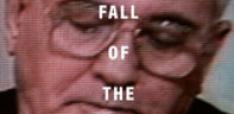When will there be Harmony?

‘White trash,’ ‘dumbass libtard,’ ‘right-wing fuckhead:’ have we all gone mad?
Q: “Why are you such a dumbass?
A: Why are morons like you allowed to breathe and steal air from human beings?”
If someone approached you in this way, would you work with them on common problems? Unlikely isn’t it, yet this kind of exchange is increasingly routine—I took this one from the Facebook page of my own community in the Catskills.
“Welcome to America dumbasses. You can start your ‘No Hate Army’ but understand we still hate you.”
Thanks for that, Country Boy @jump396. Maybe you’re the “beer drinking, meat eating, gun owning, terrorist hating, liberal destroying, flag flying, America loving, commie killing, motherfucker Obama warned you about” that I see on bumper stickers at my local shopping mall.
“You should be sent to ISIS to be killed with real knives” for putting on a Trump-themed version of Julius Caesar in New York’s Central Park. Oh really—have you ever seen ISIS in action? Yes that’s right I’m a “libtard”—the increasingly-popular shorthand for ‘retarded liberal’ among those who see liberalism as a ‘mental illness’ and progressives as ‘diseased.’
Those of us on the left don’t like to think of ourselves as part of this noxious trend—it’s always ‘them’ not ‘us’ that creates the problem—but here’s a selection from my own recent twitter feed in reference to people (a.k.a human beings) who voted for Donald Trump: ‘right wing fuck-heads,’ ‘white trash,’ ‘redneck morons,’ ‘Nazi scum,’ ‘dumb white bitches,’ ‘racists,’ ‘bigots,’ ‘fascists’ and ‘brain-washed religious fanatics.’
To me, these responses seem like a form of madness in which differences of view are magnified into the mental and emotional equivalent of the Berlin Wall; symbols of tribal identity to be displayed with pride in the ‘scorn wars’ that are rapidly unfolding in America and beyond. This isn’t just disagreement, but disagreement that’s whipped up and manipulated with potentially grievous consequences for democracy in a body politic whose arteries are hardening.
The result is a low grade civil war with steel tipped edges, ready to explode into violence at any moment—at a baseball field in Virginia, or on a commuter train in Portland, or inside an African Episcopal church in Charleston, South Carolina. Right kills left kills right keeps right on killing. I don’t care who wields the knife or the gun.
This development is incredibly important. Don’t tell me that language is irrelevant, that politics is a ‘contact sport,’ that I should just toughen up and stop being such a ‘snowflake.’ Violent language is a form of violence, both directly harmful to its targets and an antecedent of actual, physical aggression. But the poison goes much deeper than this, seeping into our relationships, our attempts to solve our problems and our efforts to build community.
When there is no genuine communication, the possibilities of negotiated consensus decline, opening the way for conflicts between different versions of the truth, each sustained by their own exclusive structures of knowledge, discussion and social media. Both left and right may think that only their ultimate victory will guarantee success, so each is determined to unravel the achievements of the other once in power.
But throughout recent history, periods of growth with equality have been based on a broader consensus across society that protects a core set of goals: social and economic security, health and education for all, a clean environment and a strong democracy—the things required for everyone to flourish even if many other differences remain. A consensus like this existed in the US and much of Europe after World War II for around 30 years, though racism and sexism abounded.
By definition, these ‘common interests’ can only be found through democratic struggle and debate—we can’t find them unless we look for them together. But that presupposes a capacity and a willingness to engage across the lines of difference. What happens when both of these things are eroded?
It’s not difficult to see how we got ourselves into this mess: a climate of fear and insecurity makes people more susceptible to demagogues and others who benefit from division—special interest groups like the National Rifle Association, for example, ‘shock-jocks’ on radio stations, politicians in search of a constituency, and websites that show you that there really is a conspiracy against you, an enemy who must be destroyed.
Places where people of different political views can meet and engage with one-another are much more difficult to find now that the old cross-cutting member-driven federations like Parent-Teacher Associations have been replaced by single-issue and other exclusive groups, and virtual spaces on the Internet have not replaced them.
Trading insults is also cathartic, perhaps more so than many of us might admit. It’s a way of channeling all your inchoate frustrations into a single, visible target—Trump or Clinton, the left or the right, pro-choice or anti-abortion; a chance, at last, to ‘let it all out’ against those who you think have ignored or belittled you. This isn’t a conversation but a wrestling match, ‘mano a mano,’ no prisoners taken and no surrender.
What’s difficult is figuring out what to do about these problems, and who blinks first. At the personal level we’re presented with the most elemental of questions: when you meet that other human being, who do you see? White trash, or the firemen who volunteer to come to your rescue, the farmers who grow your food, and the guys who plough your roads throughout the winter?
Likewise, if you voted for Donald Trump, do you see liberals as ‘retarded,’ or people just as wondrous as those you love who happen to have a different view about abortion, gun control and government regulation; people who have the same rights as you do to love and marry who they want, to make their own decisions over their bodies and to be protected from police brutality?
Wherever you stand on the political spectrum your responsibility is the same: break the cycle, even if ‘the other side’ initially rejects you. That’s what emotional maturity looks like in practice. We’re supposed to be building the “beloved community” as Martin Luther King once put it, not the beloved political party or social movement (important as they are). And in a community there should be a place for everyone, barring the violent extremists who have to be monitored and dealt with through the law.
At the political level we need new institutions that bring people together in common projects, re-orienting incentives away from division and exaggerated conflicts towards joint accountability and decision-making, in which everyone has a role, and which promote the widest possible level of economic, social and political security. People are much more likely to reach out and make connections with others when they don’t have to fight for survival, respect or recognition. Like rocks in a stream, the sharp edges of our differences can be softened over time as we knock against each other in collective action.
Obvious priorities include removing winner-take-all election systems and other practices like gerrymandering which accentuate the polarity of politics and make consensus building much more difficult. For example, under the “Fair Representation Act” recently introduced by Representative Don Beyer, congressional districts would have multiple representatives, each elected through “ranked choice voting.” The result would be more rural Democrats, more urban Republicans, more third-party politicians, and more pressure to collaborate on legislation that affects the shared needs of all constituents.
The same goes for civil society, which is supposed to be the place where “strangers can meet and not draw the knife” as the writer John Keane once put it. That means mixing people of different views and backgrounds together in voluntary associations—a reversal of most current trends. “Standing shoulder to shoulder with people across our differences and creating new understandings and visions together is where the real transformative potential lies,” say activists Peroline Ainsworth and Kiran Nihalani on the basis of their experience of women’s co-operatives in south London.
Even social media can be used in this way, though it’s never a substitute for doing stuff together, face to face and hand in hand. Check out the Echo Chamber Club for example, or Jeff Rasley’s experiment on Facebook that invented some basic ground-rules for debate between his pro- and anti-Trump friends—most importantly, you can attack an idea or a politician but you can’t attack each-other. It’s not just that we need to ‘hear each-other’s stories;’ we also have to share each-other’s struggles and experiences—difficult as that may be.
As our political differences spiral downwards into tribal warfare, will these counter-cultural experiments be enough to restore some harmony in our relationships with others? Harmony is a very powerful idea, and a common aspiration once we remove ourselves from the shock-jocks and filter bubbles that push us in the opposite direction. My dictionary defines it as “concord, agreement, the quality of forming a pleasing and consistent whole.”
I love that vision, but does harmony really require agreement? I don’t think so. Political and cultural disagreements are much more enduring than I had ever imagined, seemingly hard-wired into human beings and the societies they create. Difference is the ‘new normal’ you might say, so it’s vital to look for patterns and relationships that preserve a diversity of beliefs while negotiating more common ground—an orchestra that doesn’t require a ban on trumpets or music from only one composer.
That’s a task that challenges many of our assumptions about politics, activism and the structure of communications. It urges us to abandon a fixation on aggregating enough power to finally destroy our enemies, in favor of transforming power relations so that new alliances can be built. My guess is that most people would prefer it that way. After all, we have to live with people we don’t agree with in our communities; we can’t just find different ways to hate them.
When will there be harmony? Not when all our disagreements disappear. That sounds like a fantasy. But there’s no reason we can’t unite with some of our differences intact. In fact that’s the only way we’ll survive.
Michael Edwards is a writer and activist based in upstate New York, and the editor of Transformation. His website is www.futurepositive.org and his twitter account is @edwarmi. This post first appeared on:
Photo credit: Tim Evanson via Foter.com / CC BY-SA




